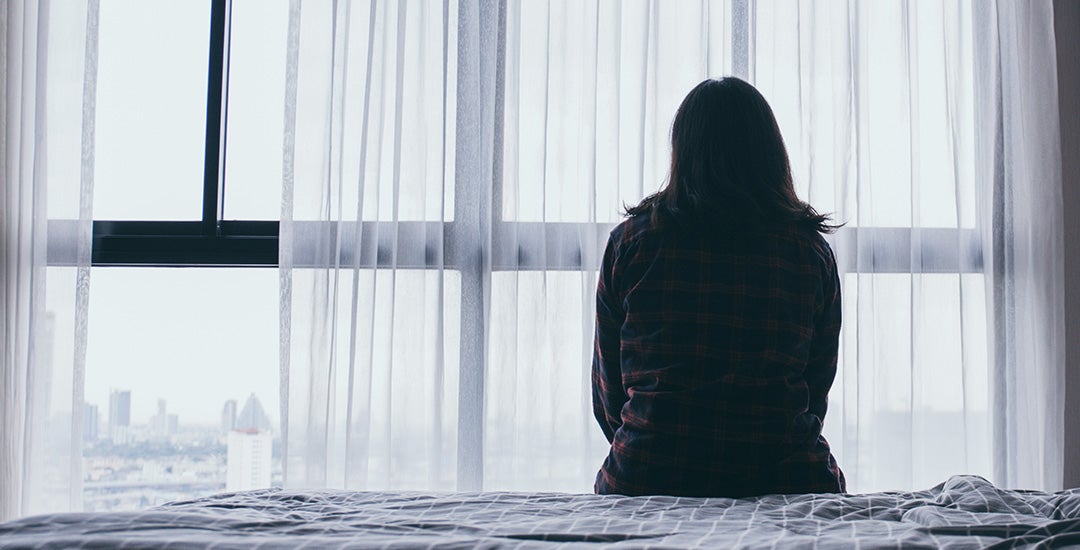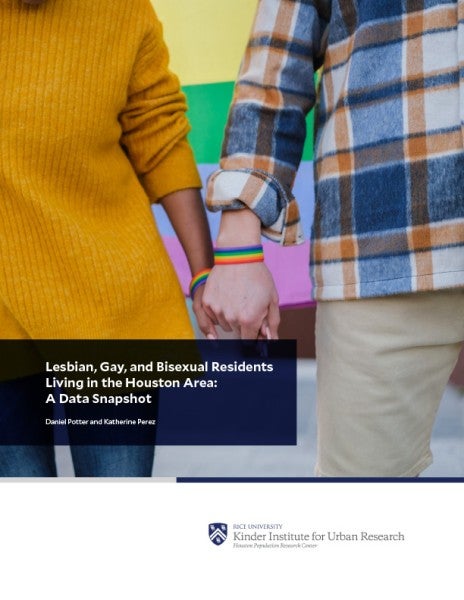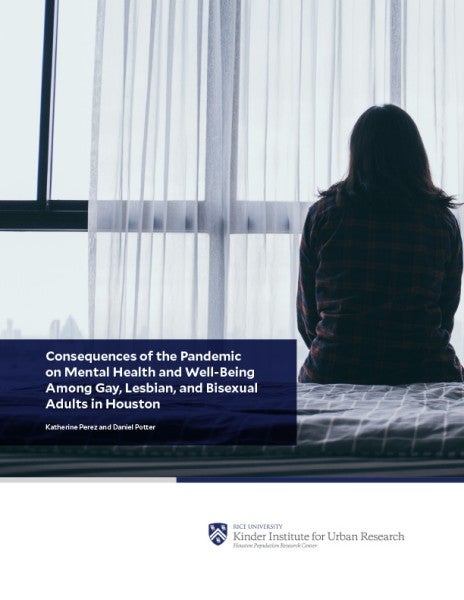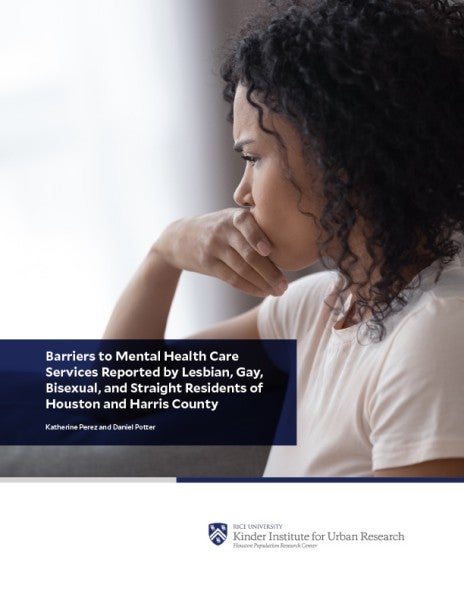Research indicates that gay, lesbian and bisexual individuals tend to experience greater mental health challenges compared to their straight peers. Differences in mental health and well-being may stem from stigma, stereotypes, prejudices and discrimination that have historically existed and in many places continue to exist, despite greater tolerance and acceptance over the past 50 years.
To better understand the circumstances and lived experiences of these sexual minorities in the Houston area, the Kinder Institute surveyed 4,200 residents about their health and livelihood. This study 1) provides a demographic overview of this group, including information about their housing situation, neighborhoods, socioeconomic status and community involvement, 2) analyzes the COVID-19 pandemic’s impact on their mental health and well-being, and 3) looks at mental health care service use and barriers to utilization.
Key findings
- Sexual minorities reported higher levels of psychological distress (i.e., poorer mental health and well-being) during the pandemic than straight individuals in Harris County, but this association was largely accounted for by socioeconomic and demographic factors.
- When comparing social and emotional pandemic experiences, sexual minorities were more likely to report feelings of loneliness, loss of relationships, elevated stress and anxiety, and alcohol, tobacco, or drug use than straight individuals.
- Lesbian and bisexual residents were 3 times more likely than straight individuals to say they needed mental health care services in the past year.
- Barriers to mental health care utilization were similar across sexual identities, with the most common barriers being:
- Mental health care services were too expensive.
- Individuals did not know where get such services or could not find a provider.
- Individuals wanted to handle the problem on their own.




